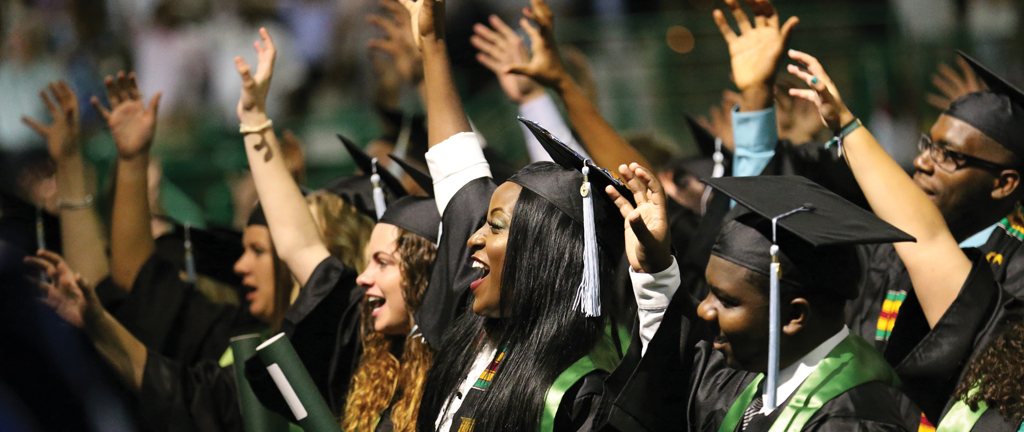In good company
Americans view Baylor among highly regarded institutions in national survey

When people across the country think about Baylor, what comes to mind? A recent national survey tapped into the top-of-mind perceptions of Baylor held by people from all walks of life. The survey, commissioned by Baylor and conducted by M/A/R/C Research in Dallas, asked respondents to share thoughts and perceptions of Baylor across a number of areas and how they categorize Baylor in comparison to other institutions.
Generally, the survey found that Baylor has made a favorable and well-rounded impression on the rest of the nation. Responses show Baylor is seen among an esteemed group of colleges across the country, and is considered to be excellent across a number of disciplines and attributes.
"This study is-for the first time ever in a scientific, systematic way--a barometer at a point in time to finding out what space we occupy and how we're recognized in people's minds," John M. Barry, vice president for marketing and communications and chief marketing officer, said. "We've drawn conclusions and hoped a lot of things, and heard a lot anecdotally. But we've never done a study that finds out, when all is said and done, what do people who know anything at all about Baylor have in their heads about us?"
Participants were initially asked to name universities with which they were familiar. Next, they were given a list of other institutions to determine awareness of universities they did not name. Survey respondents who had heard of Baylor and at least two other schools said they thought of Baylor as being similar to Notre Dame, Wake Forest, Brigham Young, Southern Methodist and Marquette, all private schools with a historic faith-based founding.
Geography also played a role in the answers, as schools in Texas such as Texas A&M, Texas Tech and TCU were also perceived to be similar. Responses showed Baylor to be highly competitive with other national institutions with a 58 percent awareness rate out of the 2,048 surveyed who said they valued higher education. The survey population was controlled for age, geography, ethnicity, income and education.
After specifically comparing Baylor to other institutions, participants then listed characteristics they ascribed to Baylor. Certainly, Baylor's faith-based mission was well-known, but academics, athletics, small classes, caring faculty, faculty research and modern facilities were also recognized by a large enough number of respondents. Baylor was one of a few universities in the survey able to sit in a "sweet spot" of being recognized for a number of characteristics, not just for athletics or a faith-based foundation. Other schools in this "sweet spot" included Vanderbilt, Boston College, Notre Dame and Wake Forest. As opposed to some universities with a "gravitational pull" toward one specific category, Baylor and the other aforementioned institutions are known for a variety of qualities, which is a good place to land in people's top-of-mind perceptions.
"One of the things we do as humans is to categorize things in order to simplify information and make decisions. That's part of what branding is all about," Dr. Chris Pullig, associate professor and chair of the marketing department in the Hankamer School of Business, said. Pullig collaborated in the research and assisted in the design of the survey. "What I found rewarding, as a faculty member, is to see the schools we are compared to. I think that tells you we're not seen as regional as we might have been, but more of a national university."
Going forward, Baylor will use the results of the survey to continue to communicate the stories and attributes that have made such a favorable impression.
"This is about looking ahead," Barry said. "It's not about, 'Hey, we've arrived!' The message to our students and alums is that the University you know is known by others because you're helping to live the story and tell that story to others. Institutionally, we will continue to tell that story as well.